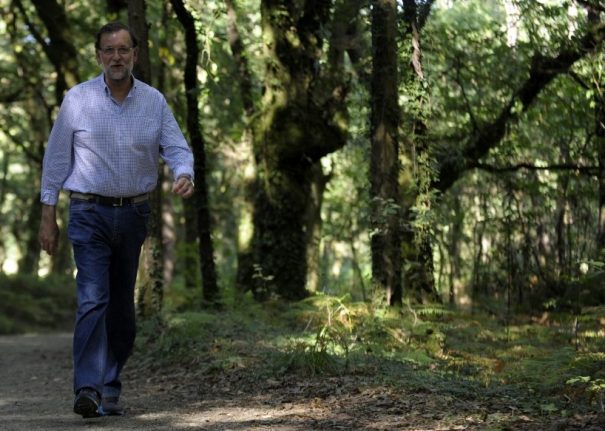But under strict lockdown measures imposed across Spain since March 14th in a bid to control the spread of the coronavirus, most responsible citizens understand that such a simple thing is forbidden for their own good, for the health service and to protect the most vulnerable in society.
So it has caused not a little anger to see images of Spain’s former Prime Minister, Mariano Rajoy, going for a walk on the empty streets of the capital.
Footage of the former conservative party leader, who was prime minister from 2013 until he was ousted by Socialist Pedro Sanchez last year after the PP became engulfed in a corruption scandal, breaching confinement rules were broadcast on La Sexta on Tuesday.
Rajoy rompe el confinamiento y sale a hacer ejercicio a la calle cerca de su casa, en Madrid https://t.co/mwBFVBsD0d
— laSexta (@laSextaTV) April 14, 2020
Although it is permissible to leave the house under certain circumstances – to buy essentials, visit the doctor, walk the dog or take out the trash, Rajoy appears to be doing none of those tasks but simply stretching his legs.
Dressed in tracksuit and trainers, the former PM has reportedly been seen outside exercising on a regular basis by neighbours, a banned activity that could see normal citizens fined between €100 and €600. Penalties go up to €30,000 or even a jail sentence for more serious infringements.
On Wednesday Spain’s Interior Minister Fernando Grande-Marlaska said authorities were considering opening an investigation after seeing the footage.
“The rule will be applied in the normal way,” said Mr Grande-Marlaska in a press conference. “A person’s name has no bearing on the application of the law.”
However, a spokesman for the PP defended the party’s former leader. Cuca Gamarra, secretary of social policy insisted “Rajoy’s privacy should be respected” and instead asked the government to “focus on what is important in this health crisis”
There is increasing pressure for Spain to lift restrictions of lockdown to people and especially children, who have been cooped up inside since March 14, to leave the house and exercise in the outdoors.
According to the latest data from the interior ministry, more than 650,000 penalties have been issued for breaching lockdown.
READ MORE:



 Please whitelist us to continue reading.
Please whitelist us to continue reading.
Member comments